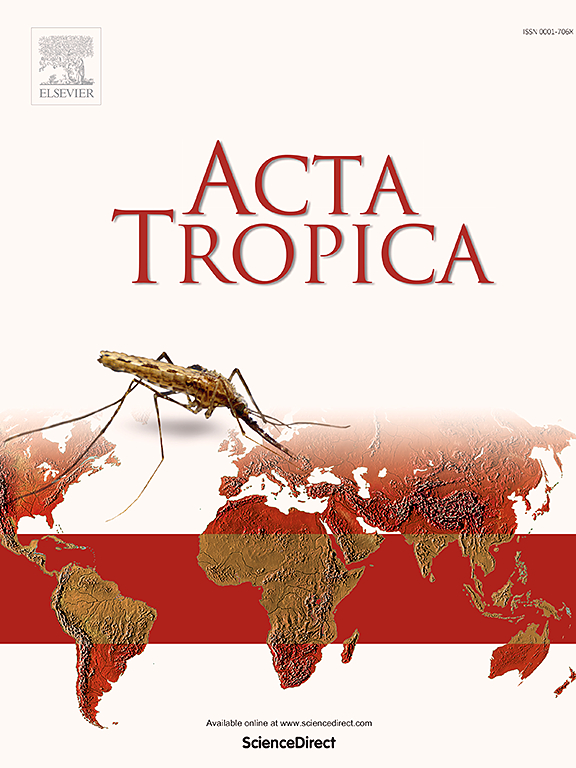Evaluation of the prevalence of Echinococcus multilocularis in free-roaming dogs in the human alveolar echinococcosis endemic region of Turkey
IF 2.1
3区 医学
Q2 PARASITOLOGY
引用次数: 0
Abstract
As free-roaming dogs may play a pivotal role in the transmission of alveolar echinococcosis (AE) to humans, the detection of the parasite in dogs is important for the control of the disease. The objective of this study was to ascertain the current situation of E. multilocularis in free-roaming dogs in the northeastern region of Türkiye which is endemic for human AE.
The study area comprises the provinces of Ağrı, Ardahan, Bayburt, Erzincan, Erzurum, Iğdır and Kars. Between 2019 and 2020, 1069 individual fecal samples collected from free-roaming dogs were analyzed by sequential flotation/sieving method. Each taeniid egg-positive sample was then subjected to PCR for the amplification of partial fragments of 12S rRNA and NAD1 of E. multilocularis. The regional prevalence of E. multilocularis was 8.7 % (93/1069), while the rates of provinces were as follows: Bayburt [14.4 % (15/104)], Iğdır [13.2 % (14/106)], Kars [10.4 % (12/115)], Erzurum [8.3 % (35/420)], Erzincan [6.9 % (7/101)], Ağrı [6.9 % (8/116)] and Ardahan [1.9 % (2/107)].
This study demonstrates the high burden of E. multilocularis in free-roaming dogs and highlights the potential crucial role of dogs in the transmission of AE, which is a significant public health concern for humans in the region. These findings emphasize the necessity to design control strategies for AE in the region that cover both rural and urban areas and focus specifically on free-roaming dogs.
求助全文
约1分钟内获得全文
求助全文
来源期刊

Acta tropica
医学-寄生虫学
CiteScore
5.40
自引率
11.10%
发文量
383
审稿时长
37 days
期刊介绍:
Acta Tropica, is an international journal on infectious diseases that covers public health sciences and biomedical research with particular emphasis on topics relevant to human and animal health in the tropics and the subtropics.
 求助内容:
求助内容: 应助结果提醒方式:
应助结果提醒方式:


